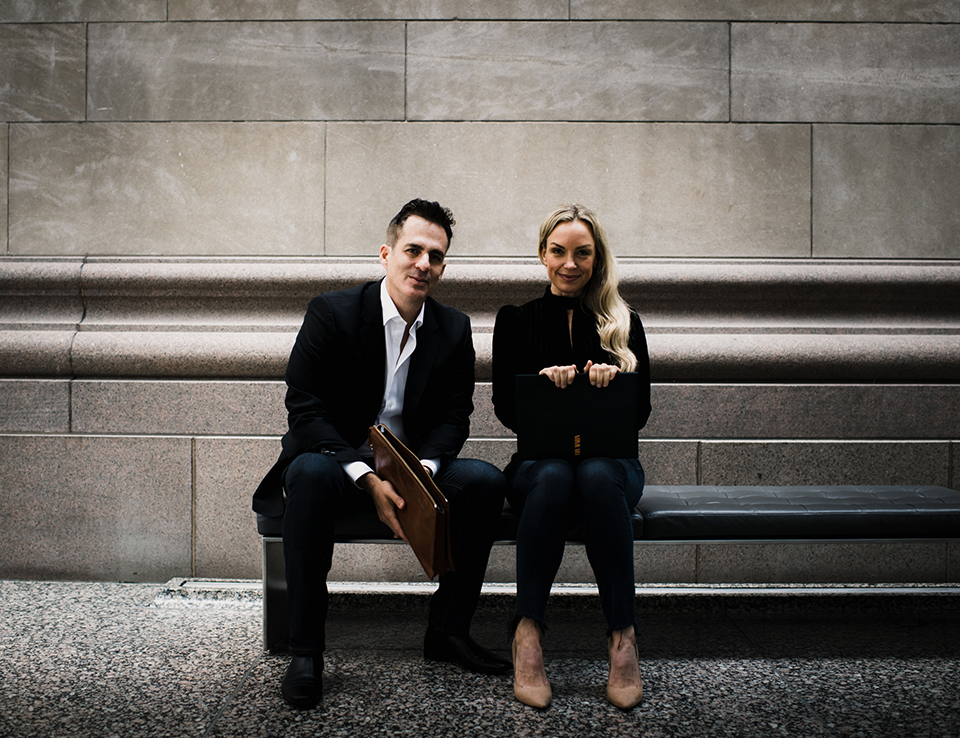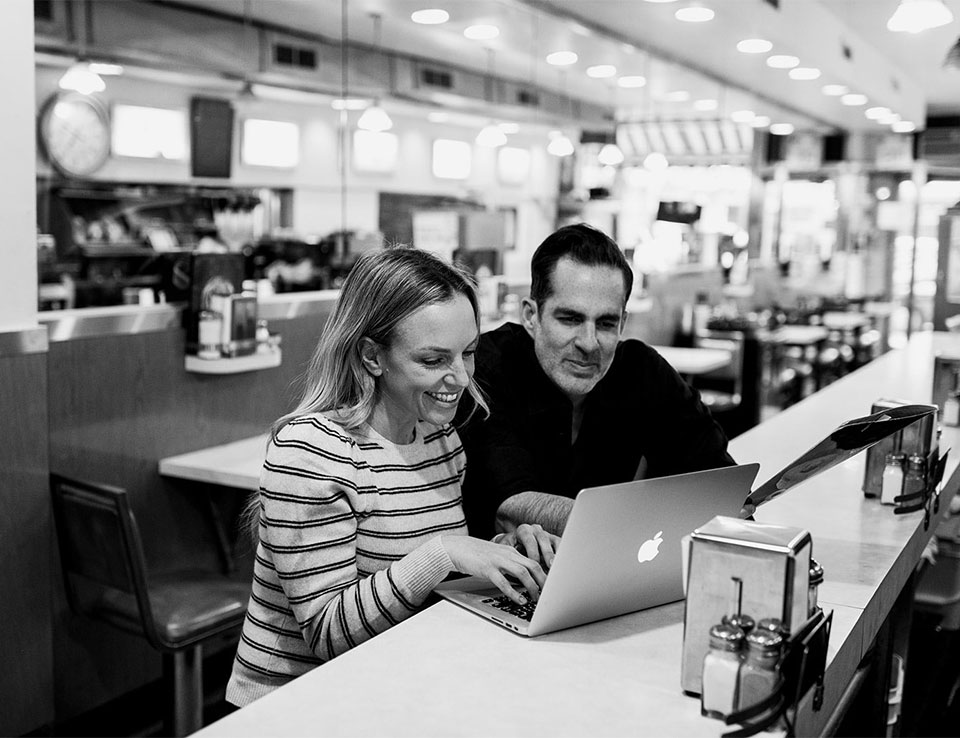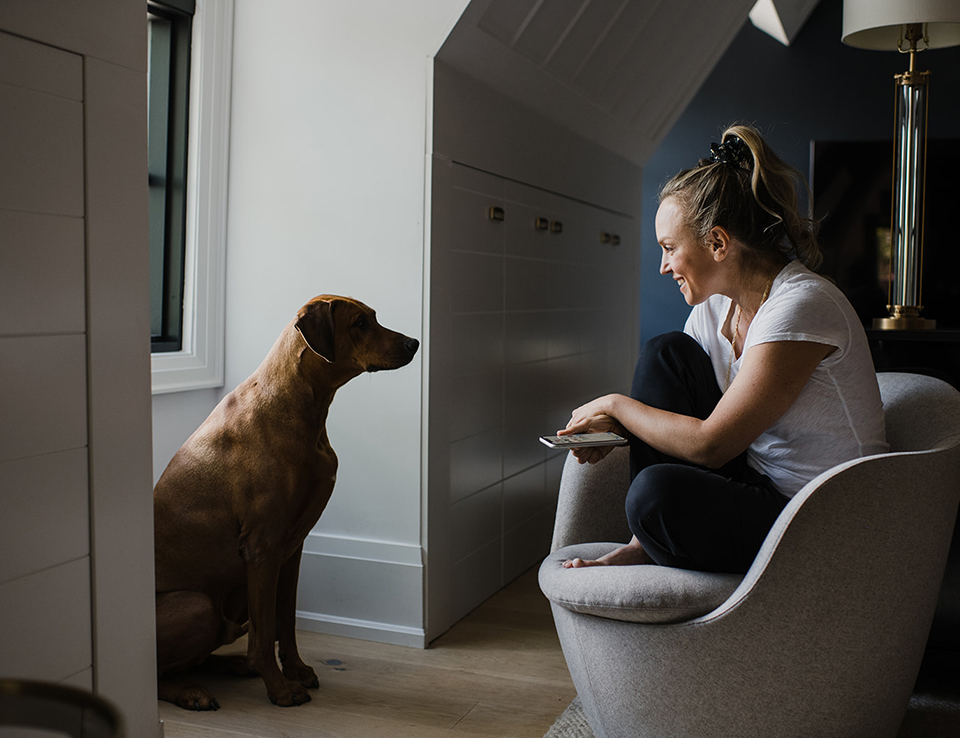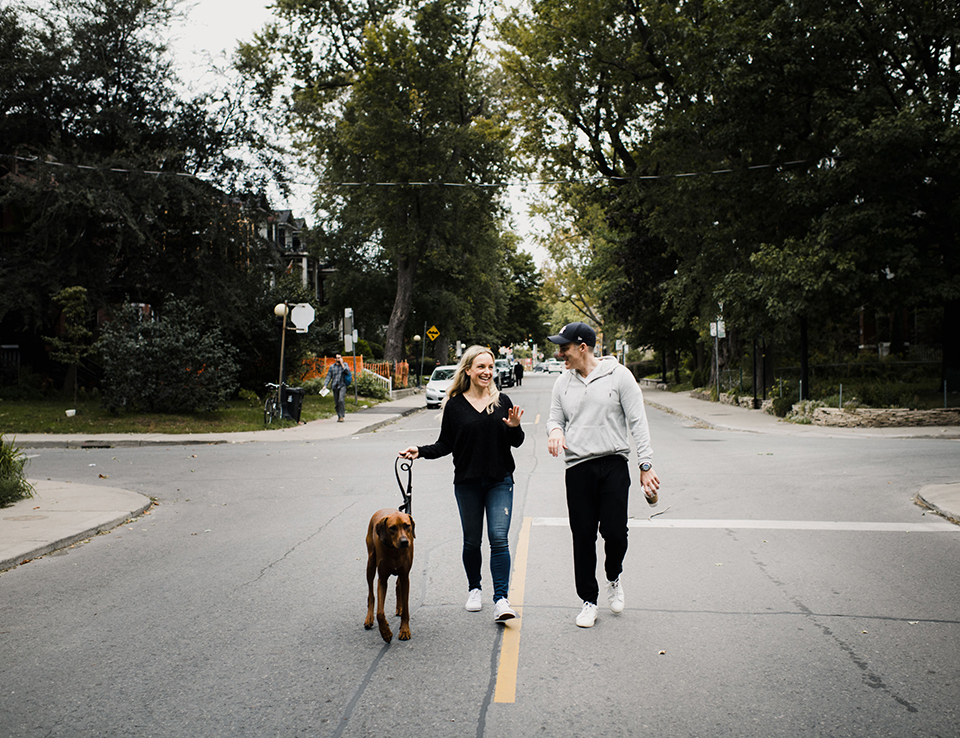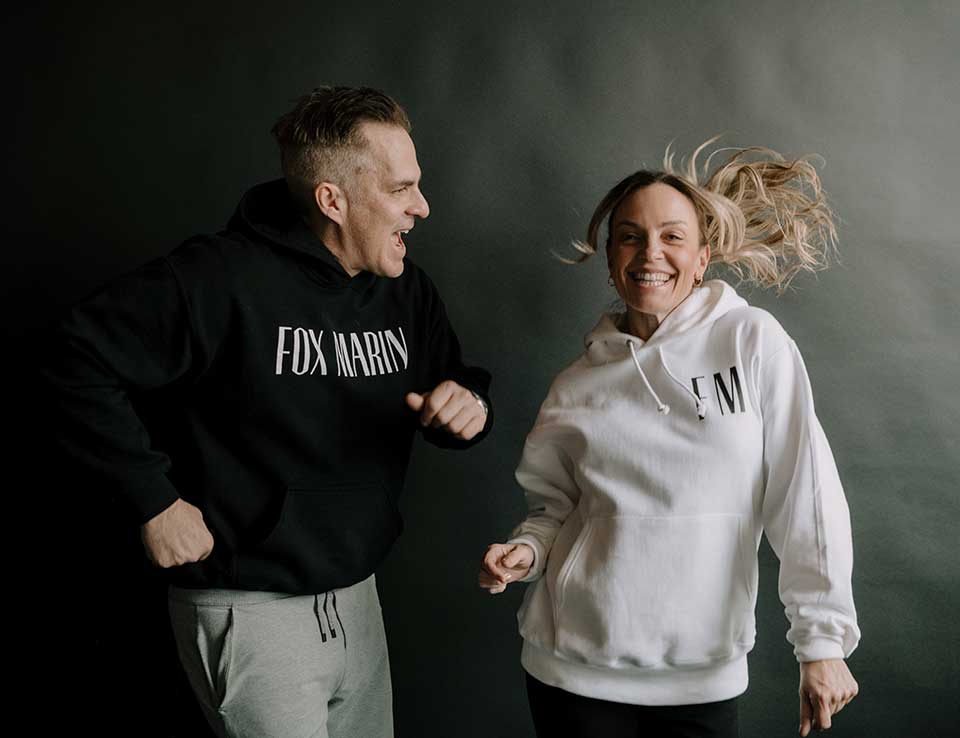Has The Toronto Bubble Finally, Popped?
About
Social Impact
FM SCHOLARSHIP PROGRAM
FOX MARIN. WE ARE MORE THAN JUST REAL ESTATE.
While it’s true we Love Toronto Real Estate and partnering with our clients every day - Leveraging Our Business and Brand to Champion a Future Four-Legged Hero Feeds our Soul:
How one puppy can make a difference. The Fox Marin Scholarship program covers the cost and tuition for a CNIB puppy to complete two years of training to become a CNIB guide dog graduate. CNIB Guide Dog programme graduates can have a significant impact as companions in the daily lives of the blind, deaf, or vision impaired.
Become a Champion. Donate!
Championing a Hero in the Making
The Impact of Fox Marin’s Partnership with CNIB Guide Dogs
Fox Marin’s partnership with CNIB Guide Dogs reflects our
deep-rooted commitment to integrity, excellence, and community impact. By raising a Fox Marin-sponsored guide dog puppy, we align ourselves with CNIB’s mission to enhance accessibility and inclusion for Canadians who are blind, deafblind, or have low vision. This collaboration underscores our dedication to delivering more than outstanding business results; it emphasizes our pursuit of meaningful, transformative contributions to the wider community. Plus, the entire team at Fox Marin loves dogs and personally understands their impact on our lives – so it’s very important to us to pay that four-legged bond forward!
This partnership initiative reflects the core of Fox Marin’s brand ethos, propelled by a commitment to going beyond our promises and nurturing a culture steeped in growth and expansion. In supporting CNIB Guide Dogs, we are not just participating in a program; we are championing a hero in the making—a cause that mirrors our values of innovation, leadership, and community enhancement.
Fox Marin Scholarship Program with CNIB, we’ve committed to contributing a percentage of our commissions from every resale transaction to the CNIB Foundation. With each home we help buy or sell, a portion of our earnings goes directly to supporting CNIB’s vital programs and services for individuals with sight loss. This initiative is more than just a donation; it’s a partnership with our clients to make a meaningful impact on the lives of others. Together, we can help change lives by providing resources, training, and a guide dog’s journey from a puppy to a training programme graduate. After graduation, our FM scholarship graduate guide dog will be paired with someone in need. Every transaction with Fox Marin is a step towards creating a more supportive, immersive and inclusive community where no one gets left out!
Through this partnership, the Fox Marin scholarship program is our way of making an unwavering commitment to excellence and a passion for making a lasting difference in our community. And who doesn’t love seeing a puppy grow up to become someone’s hero?
Follow Our Guide Dog Puppy’s
Path To Heroism
Join us on an incredible journey with Fox Marin’s newest furry friend! We’re thrilled to invite you to follow the adventures of our guide dog puppy in training, sponsored through our partnership with CNIB Guide Dogs. Dive into a world of growth, guidance, and wagging tails by following us on Instagram!
Help us decide! Participate in our puppy naming competition, where your creativity could give our guide dog its forever name.
At special events, don’t miss the chance to meet our furry hero in training. Stay tuned for dates and locations to cuddle up and see the training magic in action.
We’ll share regular updates and behind-the-scenes training videos. Watch our puppy transform into a guide dog, learning to navigate the world for someone with sight loss.
From adorable milestones to training triumphs, get exclusive insights into the puppy’s journey towards becoming a guide.
Follow, like, comment, and share this inspiring story of independence and companionship.
Let’s make a difference together—one hero puppy at a time!
Join us on Instagram @_foxmarin to participate in this exciting adventure!
Do You Love Dogs?
If you do, you will appreciate how much impact a dog could have on someone’s life in need. Would you like to learn more about how you can contribute to the FM CNIB Scholarship Program?
Building a bright future
About CNIB Guide Dogs
ABOUT CNIB GUIDE DOGS
CNIB Guide Dogs raises, trains and matches dogs with Canadians who are blind, Deafblind, or have low vision. They also raise their voices to ensure people with sight loss have opportunities to live, work and play without barriers. CNIB is committed to ensuring social attitudes shift to universal acceptance and appreciation for guide dogs.
People with sight loss often say having a guide dog is a transformational experience. Being part of a guide dog team provides mobility, safety and confidence, leading to increased independence and a sense of connection with the world. Everyone who would like to have a guide dog should have that opportunity.
To help transform our communities into beacons of accessibility and inclusion, CNIB dogs have three career options:
Guide Dog - A guide dog is partnered with a youth or adult with sight loss. Whether it’s avoiding obstacles, stopping at curbs and steps or negotiating traffic, this dog fosters independence. The harness and handle facilitate communication between the dog and the person who is blind. In this partnership, the person provides directional commands, and the dog ensures the team’s safety – if necessary, the dog disobeys unsafe commands.
Buddy Dog - A buddy dog is partnered with a child with sight loss. Whether it’s feeding, grooming or walking this well-trained family pet, this will allow the child to care for a dog and, in some cases, help make it easier to transition into a guide dog partnership in the future.
Ambassador Dog - An ambassador dog is partnered with a staff member to promote CNIB Guide Dogs at community events and raise awareness about the role of guide dogs. Whether introducing someone to the benefits of guide dogs, recruiting volunteer puppy raisers for puppies-in-training or connecting with individuals interested in sponsoring the program, this dog is an important marketing team member.
CNIB Guide Dogs has trained and matched 104 dogs in communities across Canada, including:
- 67 Guide Dogs
- 30 Buddy Dogs
- 7 Ambassador Dogs
- There are currently 20 guide dogs in training at CNIB Canine Campus
- 59 dogs placed in the Puppy Development Program
- Four dogs in the CNIB Guide Dogs Breeding Program
CNIB Guide Dogs Program Stats (as of July 2024)
PHILOSOPHY
What makes CNIB Guide Dogs different?
A person-centric approach – CNIB provides all the support that’s needed. From the point that someone with sight loss pursues training to the dog’s placement and throughout the dog’s working life, we offer a wide range of supplementary services, including peer support, advocacy and more. Once the partnership has been working successfully for a year, CNIB Guide Dogs will transfer ownership of the guide dog to the handler.
An accessible and convenient option – CNIB provides an accessible and convenient option for Canadians in every part of the country. The CNIB team works with Canadians with sight loss to determine the best approach for training. Whether at home or in a central location, CNIB will support the guide dog handler in maximizing the potential for success.
The highest standards – CNIB provides dogs that meet the highest standards in health and quality. CNIB dogs come from expert sources with a proven record of providing dogs for people who are blind or partially sighted.
Expert training – CNIB expert training focuses on positive reinforcement of desired behaviours to ensure our dogs maximize their potential.
THE PUPPY-TO-PARTNER TRANSFORMATION
Becoming a guide dog begins before birth, with animals bred to have the physical and behavioural traits that make them best for the work.
Future guide dogs move through an established training process with checks to ensure their appropriate development. It’s a team effort involving volunteers, trained staff and guide dog users:
0-2 months: Puppies spend their earliest days with their mother and siblings
2-4 months: Puppies are placed with carefully selected volunteer puppy raisers. Supported by CNIB Guide Dogs staff, they play a pivotal role in raising and socializing the puppy to become a guide dog. This is the time puppies learn basic skills, obedience commands and feeding routines
5-15 months: Puppies continue to live with their volunteer puppy raisers, who will help them learn to move around safely and negotiate stairs while exposing them to as many different environments as possible. The puppy’s confidence grows.
13-17 months: Training starts in earnest as the dog begins to work with a professionally qualified guide dog trainer or guide dog mobility instructor, who is introduced to the harness and the basics of the guiding role, including working safely with a handler. Regular evaluation will ensure the dog is progressing properly.
Around 18 months: The guide dog trainer or guide dog mobility instructor starts the most critical part of the job: matching the dog to its guide dog handler, ensuring a pairing of the dog’s personality and physical attributes and the guide dog handler’s needs.
The final step: The guide dog meets their new best friend and handler, changing the life of a blind or partially sighted Canadian forever.
ADVOCACY & RESOURCES
A guide dog is a partner in independence for people who are blind or partially sighted and can open up the world in a profoundly different way. To do that, there needs to be a better understanding of guide dog team etiquette.
“It is so important for the public to understand that guide dogs are working dogs and not following the proper etiquette could endanger both the safety of myself and my guide dog,” says Kathy Culhane, who teaches Independent Living Skills at the CNIB Calgary office.
Here are a few guidelines for guide dog etiquette:
Harness on means hands off. A guide dog in a harness means “I’m working.” Petting can take the guide dog’s focus off its partner, and the potential for injury increases. If the dog is not working, the guide dog handler may decide to remove the harness and let you pet the guide dog. It’s a good idea always to ask first.
Don’t feed them. Offering food to the dog can result in disruptive behaviours like begging for food and scavenging off the ground.
Contain your excitement. Don’t encourage excitable play with a guide dog. Staying calm is part of their job.
Say “hello” another time. If you’re walking your pet and you approach a guide dog team, keep your dog away to avoid distracting the guide dog and possibly harming the guide dog user. Of course, keeping your dog on a leash is a good idea.
There is time for play! Guide dogs don’t wear their harness at home, where they are not working, and they get to be “pet” dogs. This is their time to play, run around and relax.
CNIB Guide Dogs raises, trains and matches dogs with Canadians who are blind, Deafblind, or have low vision. They also raise their voices to ensure people with sight loss have opportunities to live, work and play without barriers. CNIB is committed to ensuring social attitudes shift to universal acceptance and appreciation for guide dogs.
People with sight loss often say having a guide dog is a transformational experience. Being part of a guide dog team provides mobility, safety and confidence, leading to increased independence and a sense of connection with the world. Everyone who would like to have a guide dog should have that opportunity.
To help transform our communities into beacons of accessibility and inclusion, CNIB dogs have three career options:
Guide Dog - A guide dog is partnered with a youth or adult with sight loss. Whether it’s avoiding obstacles, stopping at curbs and steps or negotiating traffic, this dog fosters independence. The harness and handle facilitate communication between the dog and the person who is blind. In this partnership, the person provides directional commands, and the dog ensures the team’s safety – if necessary, the dog disobeys unsafe commands.
Buddy Dog - A buddy dog is partnered with a child with sight loss. Whether it’s feeding, grooming or walking this well-trained family pet, this will allow the child to care for a dog and, in some cases, help make it easier to transition into a guide dog partnership in the future.
Ambassador Dog - An ambassador dog is partnered with a staff member to promote CNIB Guide Dogs at community events and raise awareness about the role of guide dogs. Whether introducing someone to the benefits of guide dogs, recruiting volunteer puppy raisers for puppies-in-training or connecting with individuals interested in sponsoring the program, this dog is an important marketing team member.
CNIB Guide Dogs has trained and matched 104 dogs in communities across Canada, including:
- 67 Guide Dogs
- 30 Buddy Dogs
- 7 Ambassador Dogs
- There are currently 20 guide dogs in training at CNIB Canine Campus
- 59 dogs placed in the Puppy Development Program
- Four dogs in the CNIB Guide Dogs Breeding Program
CNIB Guide Dogs Program Stats (as of July 2024)
What makes CNIB Guide Dogs different?
A person-centric approach – CNIB provides all the support that’s needed. From the point that someone with sight loss pursues training to the dog’s placement and throughout the dog’s working life, we offer a wide range of supplementary services, including peer support, advocacy and more. Once the partnership has been working successfully for a year, CNIB Guide Dogs will transfer ownership of the guide dog to the handler.
An accessible and convenient option – CNIB provides an accessible and convenient option for Canadians in every part of the country. The CNIB team works with Canadians with sight loss to determine the best approach for training. Whether at home or in a central location, CNIB will support the guide dog handler in maximizing the potential for success.
The highest standards – CNIB provides dogs that meet the highest standards in health and quality. CNIB dogs come from expert sources with a proven record of providing dogs for people who are blind or partially sighted.
Expert training – CNIB expert training focuses on positive reinforcement of desired behaviours to ensure our dogs maximize their potential.
Becoming a guide dog begins before birth, with animals bred to have the physical and behavioural traits that make them best for the work.
Future guide dogs move through an established training process with checks to ensure their appropriate development. It’s a team effort involving volunteers, trained staff and guide dog users:
0-2 months: Puppies spend their earliest days with their mother and siblings
2-4 months: Puppies are placed with carefully selected volunteer puppy raisers. Supported by CNIB Guide Dogs staff, they play a pivotal role in raising and socializing the puppy to become a guide dog. This is the time puppies learn basic skills, obedience commands and feeding routines
5-15 months: Puppies continue to live with their volunteer puppy raisers, who will help them learn to move around safely and negotiate stairs while exposing them to as many different environments as possible. The puppy’s confidence grows.
13-17 months: Training starts in earnest as the dog begins to work with a professionally qualified guide dog trainer or guide dog mobility instructor, who is introduced to the harness and the basics of the guiding role, including working safely with a handler. Regular evaluation will ensure the dog is progressing properly.
Around 18 months: The guide dog trainer or guide dog mobility instructor starts the most critical part of the job: matching the dog to its guide dog handler, ensuring a pairing of the dog’s personality and physical attributes and the guide dog handler’s needs.
The final step: The guide dog meets their new best friend and handler, changing the life of a blind or partially sighted Canadian forever.
A guide dog is a partner in independence for people who are blind or partially sighted and can open up the world in a profoundly different way. To do that, there needs to be a better understanding of guide dog team etiquette.
“It is so important for the public to understand that guide dogs are working dogs and not following the proper etiquette could endanger both the safety of myself and my guide dog,” says Kathy Culhane, who teaches Independent Living Skills at the CNIB Calgary office.
Here are a few guidelines for guide dog etiquette:
Harness on means hands off. A guide dog in a harness means “I’m working.” Petting can take the guide dog’s focus off its partner, and the potential for injury increases. If the dog is not working, the guide dog handler may decide to remove the harness and let you pet the guide dog. It’s a good idea always to ask first.
Don’t feed them. Offering food to the dog can result in disruptive behaviours like begging for food and scavenging off the ground.
Contain your excitement. Don’t encourage excitable play with a guide dog. Staying calm is part of their job.
Say “hello” another time. If you’re walking your pet and you approach a guide dog team, keep your dog away to avoid distracting the guide dog and possibly harming the guide dog user. Of course, keeping your dog on a leash is a good idea.
There is time for play! Guide dogs don’t wear their harness at home, where they are not working, and they get to be “pet” dogs. This is their time to play, run around and relax.
Make a Paws-itive Impact
Your Donation Trains
Tomorrow’s Heroes
Support a future guide dog that will help give freedom and independence to someone with sight loss. Gifts from generous supporters mean CNIB Guide Dogs can raise, train and match guide dogs with Canadians with sight loss, and handlers never pay a cent.

